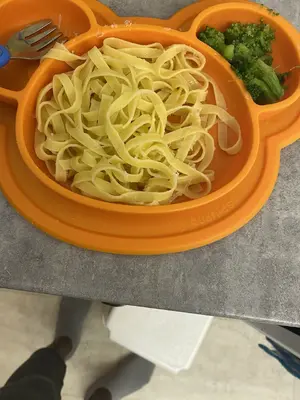Medical
There are some
medical issues that can make eating a negative experience for a child. A child who pairs eating with discomfort or even pain will naturally not be motivated to eat. Possible issues to rule out include respiratory involvement, dysphagia or swallowing disorders, Reflux/GERD, chronic constipation, and other upper and lower GI issues.
Seeking out a pediatrician familiar with ASD and the potential medical deficits associated with feeding difficulty is important. Other professionals such as gastroenterologists, pulmonologists, ENTs, endocrinologists, and nutritionists are also important to have on your team to effectively assess potential medical etiologies.
Children diagnosed with ASD often display sensory processing deficits that can affect their ability to interact with different foods. To a child with an oversensitive sensory system, food may look, sound, smell, feel, or taste offensive. The interaction with certain “offensive” foods can cause a physiological, involuntary response resulting in the child gagging, spitting out, or altogether refusing to interact with it.
When we understand that our children have legitimate sensory processing difficulties working against them at mealtime, we can start moving forward in helping them become more comfortable with a larger variety of food.
Occupational therapists (OTs) are trained in treating children with sensory processing difficulties and can evaluate the extent to which this is affecting your child with ASD’s feeding skills.
Psychological
How parents interact with their child to encourage eating can set the tone for success, or failure. When children experience accusatory or negative language with frequent questions, demands or commands, their confidence and ability to work through eating challenges are affected.
Working to create and maintain a positive environment is important in helping a child with feeding deficits remain hungry and motivated to eat. When children feel safe, encouraged, and engaged in such an environment, mealtime can be transformed into a more successful experience.
Psychologists can provide treatment that addresses the family mealtime environment and give
strategies for children with anxiety related to food.
